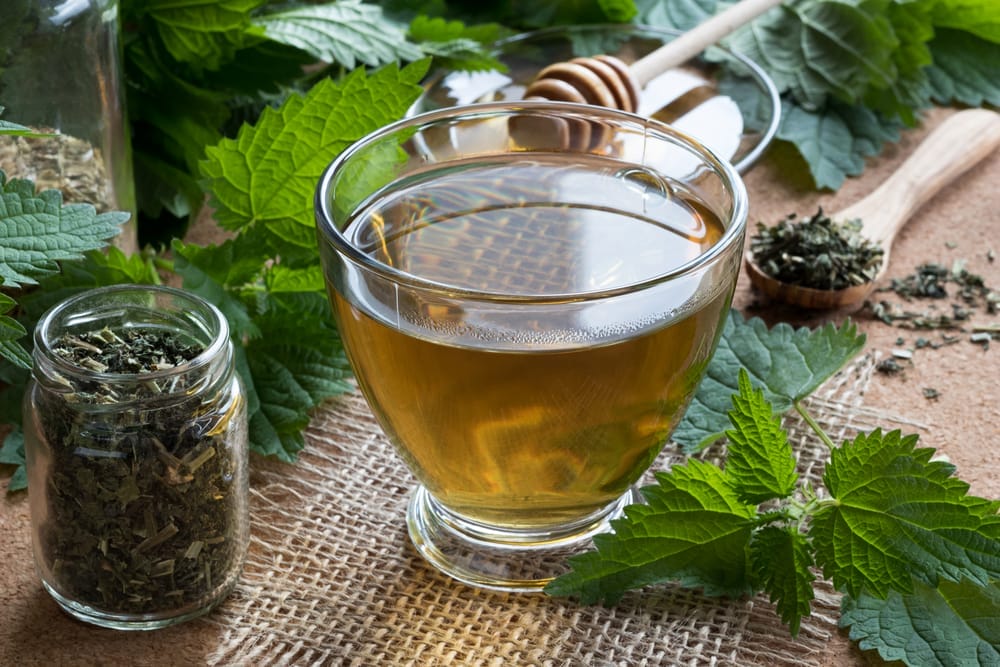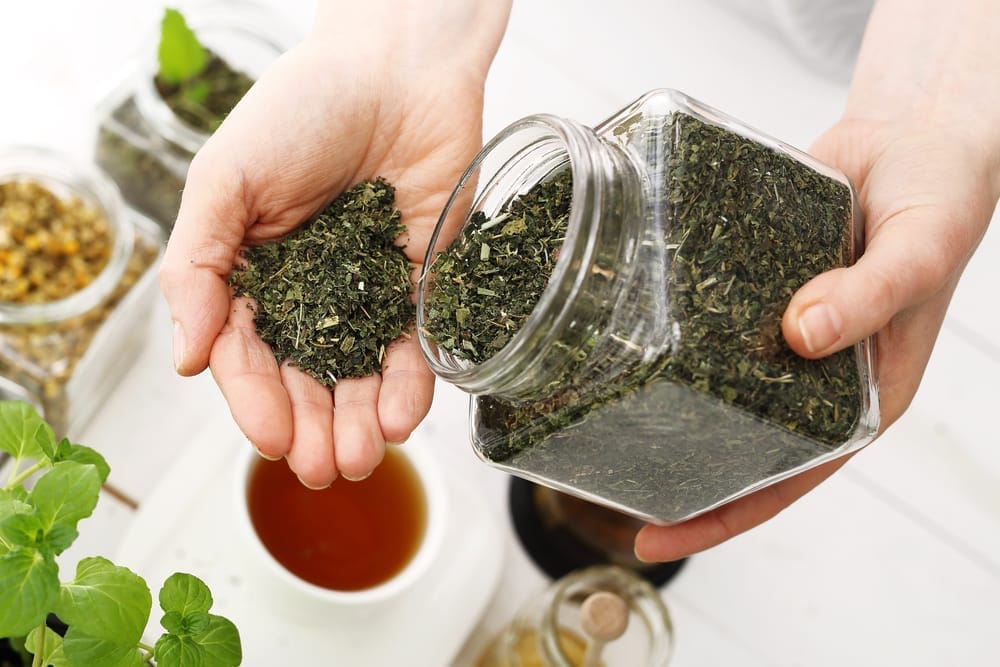Herbs an extraordinary ally of health, which have been accompanying humans since remote ancient times to nurture the body, including a healthy urinary tract. Fighting urinary tract infections, persistent bladder pain and incontinence can be difficult, but fortunatelynature offers many medicinal plants that can prove invaluable in combating these ailments. Properly selected and properly dosed herbs for the urinary tract are an indispensable aid for cystitis and urethritis, as well as the problem of incontinence. Not only do they bring relief, but also prevent recurrent infections, improve the function of the organs that make up the urinary tract and generally support our immunity. How to use herbs for the urinary tract? Which plants to choose?
Table of contents
- 1 Urinary tract ailments a common problem
- 2 How do herbs work for cystitis and other sections of the urinary tract?
- 3 How do herbs for incontinence work?
- 4 Why reach for herbs for the urinary tract?
- 5 How to use herbs for the urinary tract?
- 6 How to dose herbs for the urinary tract?
- 7 How to make a soak for urinary tract inflammation?
- 8 Herbs for the urinary tract – which are the best?
- 9 Field horsetail for the urinary tract
- 10 Parsley for the urinary tract
- 11 Common goldenrod for the urinary tract
- 12 Bearberry for the urinary tract
- 13 Nettle for the urinary tract
- 14 Juniper for the urinary tract
- 15 Blueberry for the urinary tract
Urinary tract ailments a common problem

One area of our health that is, unfortunately, increasingly subject to conditions is the urinary tract. These delicate structures provide an ideal environment for infections to develop. Therefore, urinary tract infections are an increasingly common phenomenon affecting young and old alike. The urethra, which is one of the key links in the urinary system, often becomes a breeding ground for bacteria and other pathogens. Also, the urinary bladder, due to its specific structure of the reservoir where urine is stored, can be a convenient environment for bacteria.
Urinary tract infections can occur under a variety of circumstances. Insufficient personal hygiene, use of public toilets, as well as psychological problems can be the cause. Weakness of the body, an unhealthy diet and chronic constipation, and even excessive stress can also be factors responsible for the development of infections. Abnormalities of the reproductive organs, prostate growth and hormonal changes in the body may also predispose to these unpleasant ailments.
In younger people, infections are often the result of a cold urinary tract (which, in turn, is the result of dressing too lightly, especially in the autumn-winter season). Sometimes infections are also related to frequent changes in sexual partners. Older patients, on the other hand, are prone to infections related to the body’s natural aging process.
Urinary incontinence is also an inherent problem related to the urinary system. The causes of this phenomenon can be multiple. Weakening of the pelvic floor muscles (the so-called Kegel muscles), which are responsible for controlling bladder function, is one of the key factors leading to this embarrassing and annoying problem.
Various remedies are used to combat urinary abnormalities, among which are both pharmaceuticals and natural solutions. As can be observed, herbs for the urinary tract are becoming an increasingly popular remedy for both infections and the problem of incontinence.
How do herbs work for cystitis and other sections of the urinary tract?
Urinary tract infections are usually caused by bacteria, less commonly viruses or fungi, which have penetrated the urethra and further into the bladder, where they have multiplied and caused inflammation. Herbs have not been used to treat urinary tract diseases for a long time, with herbs mostly showing high efficacy in extinguishing infections if dosed properly. In the case of severe infections, the simultaneous use of herbs internally (drinking infusions) and externally (making soaks) works best.
The main symptoms of urinary tract disorders caused by microorganisms are, frequent urination, pushing on the bladder, pain in the lower abdomen, pain and burning when urinating, as well as fever or general brokenness. Properly selected herbs help alleviate all these symptoms, while inactivating and blocking further growth of bacteria or other pathogens responsible for the infection.
Herbs for urinary tract infections show action:
- anti-inflammatory,
- disinfectant, antibacterial,
- pain relieving,
- antipyretic,
- restoring the proper pH in the urinary tract (which prevents the settlement of bacteria),
- diuretics (lead to faster flushing out of microorganisms).
How do herbs for incontinence work?
Urinary incontinence is an embarrassing and acute ailment, the main feature of which is the disruption of control over the flow of urine from the urethra, and thus the appearance of involuntary urine leaks. Herbs can provide very valuable support in alleviating incontinence problems. Their action is multifaceted and includes, first of all, strengthening the urinary tract, improving its functioning and restoring regularity in urination.
How herbs offset the problem of incontinence:
- improve muscle function in the urinary tract,
- strengthen the structures of the urinary tract,
- improve bladder function,
- showing diuretic properties, improve the process of urination,
- improve bladder control, reduce the feeling of sudden urge to urinate,
- increasing urine production, help remove microorganisms from the urinary tract, cleanse the kidneys and bladder,
- contribute to the removal of harmful substances from the body, supporting natural detoxification,
- they reduce inflammation.
Why reach for herbs for the urinary tract?

Herbal treatments can be extremely effective in combating urinary tract infections and incontinence problems. The most important issue here is regularity – herbs require regular consumption over an extended period of time, a minimum of 2 weeks, and in many cases longer, in order to give maximum good results.
Daily drinking of herbs allows the accumulation of large amounts of active substances in the body, which in turn translates into the strengthening of natural defense and regeneration mechanisms and the elimination of pathogens from the system.
In the fight against persistent urinary tract ailments, multi-element herbal supplements, such as UrinoFix . It is worth reaching for them if you need strong support for the urinary tract and if you are looking for a more convenient alternative to classic herbal infusions.
How to use herbs for the urinary tract?
When using herbs for the urinary tract, we must remember to follow the recommended dosages. Too small amounts may not have the desired effect, while an excess can be detrimental to the body. Therefore, let’s try to maintain the right proportions when portioning herbal ingredients.
We should use herbs for the urinary tract every day, whether in the form of infusions and decoctions or dietary supplements. This way we will ensure the continuity of their action, which can be paramount in extinguishing infections, regulating urination and strengthening muscles in the urinary tract. Herbal treatments require time for the medicinal plants to integrate into the body and begin to affect the problem.
How to dose herbs for the urinary tract?
Mostly it is recommended to use a decoction or infusion 3 times a day. For less severe symptoms, you can limit yourself to consuming herbs 1-2 times a day.
The optimal ratio is usually 1 tablespoon of herbs per 1 cup of boiling water. However, before reaching for a particular herb, it is worth making sure of the recommended portions.
How to make a soak for urinary tract inflammation?
Simply brew a strong infusion of selected herbs for urinary tract inflammation (for example, nettle, oak bark, goldenrod, sage, field horsetail) at a ratio of 5 tablespoons of herbs per 1.5 liters of water. Brew 15 minutes under a lid, strain and pour the infusion into a large bowl of water. Optionally, we add a little water (water with herbs should be about 40 degrees Celsius). Sit on the bowl for 15 minutes.
Herbs for the urinary tract – which are the best?
In naturally supporting the health of the urinary tract and eliminating annoying ailments such as recurrent infections, cystitis, urethral infection or incontinence, herbs play an invaluable role. If you want the treatment to be as effective as possible, it’s worth drinking herbal infusions 2-3 times a day for an extended period of time and additionally using soaks.
There is a wide and varied palette of herbs that support the urinary tract. Among those most popular and considered the most effective are anti-inflammatory and diuretic nettle, antiseptic oak bark, antibacterial goldenrod, diuresis-enhancing field horsetail, among others.
Field horsetail for the urinary tract
Field horsetail exhibits diuretic properties, thanks to which it cleanses the urinary tract and shortens the time of infection. It also has a diastolic, anti-inflammatory effect and relieves pain. Due to its vitamin C content, it acidifies urine, making it difficult for microorganisms to grow and develop. Thanks to the silica it contains, it improves the condition of mucous membranes and promotes regeneration.
Parsley for the urinary tract
Parsley contains large amounts of flavonoids, thanks to which it intensifies the production and excretion of urine, helps neutralize harmful free radicals and reduces inflammation. Thanks to furanocoumarins, it helps fight urinary tract infections faster. It counteracts kidney stones. It also has antibacterial and detoxifying properties.
Common goldenrod for the urinary tract
Goldenrod contains phenolic glycosides, tannins and saponins that are valuable for the urinary tract. It has strong anti-inflammatory, diuretic and antiseptic properties. It shows high efficacy both in lower urinary tract infections (bladder and urethra) and in upper urinary tract ailments (e.g. in nephritis, glomerulonephritis and pyelonephritis). It also contains valuable phenolic glycosides.
Bearberry for the urinary tract
An extremely helpful herb in treating urinary tract infections and improving the urinary tract in general. It has good antiseptic, diuretic and antibacterial properties. It counteracts the adhesion of microorganisms to the bladder walls, thus helping to extinguish the infection faster.
Nettle for the urinary tract
Has excellent antiseptic and anti-inflammatory properties. Increases the amount of urine, thus accelerating the removal of pathogenic microorganisms from the urinary tract. Thanks to vitamin C, it lowers the pH of urine (thus inhibiting the multiplication of bacteria). It also has a strengthening effect on the entire body. Both infusions and juice of nettle are an excellent way to improve immunity.
Juniper for the urinary tract
Exhibits bactericidal and disinfectant effects on the urinary tract. Reduces inflammation of the urinary tract, relieving symptoms such as burning and pain. Increases urine output. Supports kidney health.
Blueberry for the urinary tract
Improves the functioning of the urinary bladder. Increases the amount of urine passed, making it more difficult for harmful microorganisms to colonize the urinary tract. Has a disinfectant and astringent effect.
Other herbs helpful for urinary incontinence and urinary tract infections:
- birdweed,
- papilionaceous birch,
- dandelion root,
- periwinkle,
- violet,
- lovage,
- common heather.
The diet for improving the urinary tract must also not lack cranberries (or cranberry juice) and pumpkin seeds.
Sources:
- https://www.healthline.com/health/uti-home-remedies
- https://www.healthline.com/health/natural-diuretics
- https://www.healthline.com/nutrition/best-diuretic-foods-drinks

